KEYNOTE SPEAKERS
Keynote 1: Private Sector Role in Driving Demand for Power

Eng. Martha Cheruto
Deputy Chief Executive Officer,
Kenya Private Sector Alliance (KEPSA)
Date: Wednesday 26th August, 2020
ABSTRACT:
The private sector plays a pivotal role in the energy space globally through generation, transmission, distribution and retailing power for eventual consumption. In Kenya, the agility and diversity of the power infrastructure provides a good opportunity for expansion, innovation and building of sustainable, redundant networks. “The government goodwill and support gives a good opportunity for investors and industry players to grow the power infrastructure for both demand and supply” – The State of Kenya’s Private Sector: Recommendations for Government Development Report. Government’s intention to increase uptake of Public Private Partnerships (PPPs), particularly in large infrastructural projects presents an opportunity for private sector involvement, reduce the fiscal pressure thus allowing government to invest in social goods.More
BIO:
Martha Cheruto is the Deputy Chief Executive Officer at the Kenya Private Sector Alliance (KEPSA); the private sector apex body that brings together the business community under a single umbrella to engage and influence public policy for an enabling business environment.
Martha holds a Bachelor of Science degree in Mechanical Engineering from Jomo Kenyatta University of Agriculture and Technology (JKUAT), a diploma in Efficient Energy Use & Planning from Swedish International Development Cooperation Agency (SIDA, Sweden), a Masters in Management & Leadership from Management University of Africa (MUA) and is currently pursuing a PhD in Management & Leadership at MUA. More
Keynote 2: Universal Access to Electricity in Africa
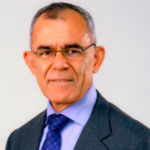
Prof. Izael da Silva
Deputy Vice Chancellor – Research and Innovation
Strathmore University, Nairobi, Kenya.
Date: Wednesday 26th August, 2020
ABSTRACT:
About 1.1 billion people in the world have no access to electricity. More than half of this number are located in Sub-Saharan Africa. Except for the oil rich countries in the North and South Africa in the South, practically all other countries in the African continent are electricity deficient.
Out of the five continents Africa is the most affected in this matter. This study hopes to give an overview of the problem and offer some solutions which could eventually see the realization of this Goal by 2030.
Three mega-trends are at work in Africa and we need to consider them as boundary conditions for the above problem. They are: moving from fossil fuel to renewable energy; moving from mostly large, government supported power plants to a mix of those together with mini-grids and off-grid solutions supported by the private sector and finally the urbanization movement which will see 25% of the rural population moving to cities.More
BIO:
Prof. Izael Pereira Da Silva has a PhD in Power Systems Engineering from the University of Sao Paulo (Brazil). He is also a Certified Energy Manager (CEM). At present he is a Professor at Strathmore University and the Deputy Vice Chancellor – Research and Innovation. He is the Director of the Strathmore Energy Research Centre, SERC. The centre does training, research, testing and consultancy in energy related topics. His topics of interest are: Rural Electrification, Renewable Energy, Energy Efficiency, Energy Policy, Sustainable Environment and Demand Side Management.
In March 2012 Prof Da Silva together with other partners won a project sponsored by DFID and DANIDA and managed by the World Bank to set up the first Climate Innovation Centre (CIC) in the world. It is housed in Strathmore and serves SMEs financially and technically to solve challenges posed by the adverse impact of climate change either by mitigation or adaptation. Prof Da Silva has written quite extensively in the field of energy.More
KEYNOTE 3: DELIVERING MENENGAI PHASE 1 GEOTHERMAL PROJECT THROUGH PUBLIC PRIVATE PARTNERSHIP
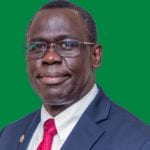
Eng. Jared O. Othieno
Chief Executive Officer,
Geothermal Development Company.
Date: Wednesday 26th August, 2020
ABSTRACT:
This talk will highlight the 105 MW project for Menengai geothermal field being implemented by GDC under a public private partnership (PPP) arrangement.
BIO:
Eng. Jared O. Othieno was appointed as the Geothermal Development Company Managing Director & CEO in April, 2020. He has a wealth of knowledge and vast experience in the energy sector. His background in energy coupled with his leadership skills will ensure that GDC enjoys continued success in its role as a leader in the development of geothermal resources.
Eng Jared has served in various senior roles at Kenya Power & Lighting Company, where he began and grew his career. Most recently, he served as Acting CEO of Kenya Power & Lighting Company. He is currently studying for a PhD in Strategic Management from the Jomo Kenyatta University of Agriculture and Technology. He also holds a Master of Business Administration (MBA) in Strategic Management and a Bachelor’s Degree in Electrical Engineering from the University of Nairobi.
KEYNOTE 4: Arc Flash Hazard and Electrical Safety, The New Revision of IEEE Std 1584

Wei-Jen Lee, Ph.D., PE
Director and Professor,
Energy Systems Research Center
University of Texas at Arlington.
Date: Wednesday 26th August, 2020
ABSTRACT:
Though electrical incidents represent a relatively small percentage of all work-related incidents, they are disproportionately fatal. In the case of burn injury, it may result in extended hospitalization and rehabilitation. Proper protection is the key to reduce casualties during these incidents. IEEE 1584 and NFPA 70E are developed to protect the safety of the workers.
For better understanding of the arc flash phenomena, the IEEE and the NFPA (National Fire Protection Association) have joined forces on an initiative to fund and support research and testing to improve the understanding of arc flashes. The results of this collaborative project will provide information that will be used to improve electrical safety standards, predict the hazards associated with arcing faults and accompanying arc blasts, and provide practical safeguards for employees in the workplace. The identified areas include but are not limited to: 1) Heat and Thermal Effects, 2) Blast Pressure, 3) Sound, and 4) Light intensity.
This presentation will cover the heat and thermal related arc flash hazards. It will include the basic understanding of the arc flash, performing the arcing current and incident energy estimation, and brief introduction to newly released IEEE Std. 1584 – 2018, IEEE Guide for Performing Arc-Flash Hazard Calculations.
BIO:
Professor Lee received the B.S. and M.S. degrees from National Taiwan University, Taipei, Taiwan., and the Ph.D. degree from the University of Texas, Arlington, in 1978, 1980, and 1985, respectively, all in Electrical Engineering.
In 1986, he joined the University of Texas at Arlington, where he is currently a professor of the Electrical Engineering Department and the director of the Energy Systems Research Center.
He has been involved in the revision of IEEE Std. 141, 339, 551, 739, 1584, and 3002.8 development. He is the President Elect of the IEEE Industry Application Society (IAS) and an editor of IEEE Transactions on Industry Applications and IAS Magazine. He is a member of IEEE Fellow Committee. He is the project manager of IEEE/NFPA Collaboration on Arc Flash Phenomena Research Project.
Prof. Lee has been involved in research on Utility Deregulation, Renewable Energy, Arc Flash Hazards and Electrical Safety, Smart Grid, MicroGrid, Industrial Internet of Things (IIoT) and Virtual Power Plants (VPP), AI for Load, Price, and Wind Capacity Forecasting, Power Quality, Distribution Automation, Demand Response, Power Systems Analysis, Short Circuit Analysis and Relay Coordination, Distributed Energy Resources, Energy Storage System, PEV Charging Infrastructure Design, AMI and Big Data, On Line Real Time Equipment Diagnostic and Prognostic System, and Microcomputer Based Instrument for Power Systems Monitoring, Measurement, Control, and Protection. He has served as the primary investigator (PI) or Co-PI of over one hundred funded research projects with the total amount exceed US$17 million dollars. He has published more than one hundred and seventy-five journal papers and two hundred ninety conference proceedings. He has provided on-site training courses for power engineers in Panama, China, Taiwan, Korea, Saudi Arabia, Thailand, and Singapore. He has refereed numerous technical papers for IEEE, IET, and other professional organizations.
Prof. Lee is a Fellow of IEEE and registered Professional Engineer in the State of Texas.
KEYNOTE 5: Updates from the IEEE Humanitarian Activities Committee (HAC)

Kartik Kulkarni
Chair,
IEEE Humanitarian Activities Committee (HAC).
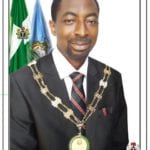
John Oyewole Funso-Adebayo
Chair,
IEEE Region 8 Humanitarian Activities Committee (HAC).
Date: Wednesday 26th August, 2020
ABSTRACT:
Learn more about the IEEE Humanitarian Activities Committee (HAC), its programs, including IEEE SIGHT and this year’s HAC/SIGHT COVID-19 grassroots projects, HAC/SIGHT activities in Africa, as well as you can get engaged.
BIOS:
Kartik Kulkarni is the Chair of the IEEE Humanitarian Activities Committee, the strategic, global arm of the IEEE Board of Directors that manages IEEE’s portfolio of programs and multi-million dollar project investments that leverage 400k+ engineers in 160+ countries in applying and advancing technology solutions for sustainable development. In 2019, Kartik has spearheaded social impact measurement of IEEE’s sustainable development projects around the world, using the technique of SocialROI. Kartik also heads Oracle’s team architecting the Blockchain Transaction Engine; he is a co-inventor on 10+ US Patents, both granted and pending. The DiscoverE Foundation recognized Kartik as a 2015 USA’s New Face of Engineering.
John Oyewole Funso-Adebayo is the 18th National Chairman of the Nigerian Institute of Electrical and Electronic Engineers (NIEEE), a division of the Nigerian Society of Engineers. His personal goals and interests are in the areas of renewable energy through innovations and infrastructure to sustain cities and communities, globally.
He is an off-grid and mobile broadband subject matter expert for design, implementation and upgrade with expansion opportunities. He delights in producing affordable and sustainable electricity for home-use, as well as designing and installing cheap internet access. He also carries out onsite training in all these. He has a postgraduate degree in Communications and an undergraduate degree in Power systems.
KEYNOTE 6: IEEE on the March in Africa
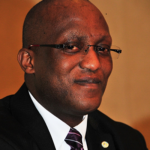
Vincent Kaabunga
Chair,
IEEE Africa Council.
Date: Thursday 27th August, 2020
ABSTRACT:
The IEEE Africa Council brings together fourteen African Sections and Subsections across Africa to collaborate on joint activities, representing and giving a voice to IEEE members in Africa. The Council was formed in Nov 2018 and its current membership includes Algeria, Botswana, Burkina Faso, Ghana, Kenya, Liberia, Mauritius, Morocco, Nigeria, South Africa, Tanzania, Tunisia, Uganda and Zambia. The presentation will chart the Institute’s efforts to expand its presence in the region and the Council’s work in supporting IEEE members in Africa and responding to the unmet needs of the African engineering community as a whole.
BIO:
Vincent Kaabunga is a Knowledge Management and Organizational Development Specialist with cross-training in Engineering, Management and M&E. He studied Electrical Engineering at Makerere University and pursued post-graduate studies in Information Technology at the University of Pretoria and Strategic Business Management training at the Strathmore Business School.
Vincent is a Telecommunications Engineer and a Senior Member of the IEEE. He has worked extensively in a professional capacity across Eastern and Southern Africa, and in South East Asia. He has over 20 years of experience in sustainable development and organizational capacity development.
He is a member of the IEEE Communications Society, the IEEE Computer Society, the IEEE Standards Association and IEEE Women in Engineering. He has served as liaison to the IEEE Board of Directors, Chair of the IEEE Kenya Section, and in various regional capacities. He has actively led and supported efforts on the ground that have seen the formation of new IEEE Sections, Student Branches, local Technical Chapters and, most recently, the IEEE Africa Council.
KEYNOTE 7: Assessment Practicum: The Purpose and Practice of Assessment by IEEE Humanitarian Activities Committee (HAC)

Sreevas Sahasranamam
Lecturer,
Hunter Centre for Entrepreneurship, Strathclyde Business School, Glasgow, UK.

Abhik Banerji
Economist,
National Institute of Urban Affairs, Delhi.
Date: Thursday 27th August, 2020
ABSTRACT:
Background to social impact measurement broadly, impact measurement metrics, what’s different about HAC/SIGHT COVID-19 assessment plan.
BIO:
Sreevas Sahasranamam is a lecturer in entrepreneurship and innovation at the Hunter Centre for Entrepreneurship, Strathclyde Business School, Glasgow, United Kingdom. His research predominantly focuses on innovation/entrepreneurship in and from emerging markets. He leads the doctoral training centre in Socially Progressive Innovation and Entrepreneurship at Strathclyde, and is also a part of the IEEE HAC assessment committee.
Abhik Banerji is an economist with 5 years of experience in the field of policy and international development. At the National Institute of Urban Affairs, he is the economist for the Enabling Strategic Plan for the Master Plan of Delhi-2041. Previously, Abhik has worked with the Africa Education Global Practice at the World Bank and the Research Department at the International Monetary Fund. Some of his previous key assignments include working on the Tanzania Free Basic Education Policy, Improving School Management Committees in rural Sindh, Pakistan and the 14th Finance Commission of India. He has a Masters in Applied Economics from the Department of Economics, Georgetown University.
KEYNOTE 8: Internet of Things for Smart Grid

Prof. Imed Ben Dhaou
Associate Professor,
Unaizah College of Engineering, Qassim University, Saudi Arabia.
Date: Thursday 27th August, 2020
ABSTRACT:
Smart grid is a new revolution in the energy sector in which the aging utility grid will be replaced with a grid that, among other features integrates advanced control algorithms for teleoperations, incorporates distributed energy resources, and supports two-way communication between customers and the power generation unit. Information and Communication Technology (ICT) is the cornerstone for the realization of the smart grid. In recent years, the Internet of Things (IoT) has emerged as a new interconnectivity platform that ties together objects, machines, humans, services, heterogeneous networks, and the like, using IP technologies. In this talk, we will cover the architecture of the smart grid and explore the usage of IoT in the realization of smart grid applications viz., HEM, transmission line monitoring (TLM), and substation automation.
BIO:
Prof. Imed Ben Dhaou (S’97-M’02, SM’2011) was born in 1972 in Tunisia. He received a Master’s degree in Electrical Engineering from the Tampere University of Technology, Tampere, Finland, the Ph.D. degree from the Royal Institute of Technology, Stockholm, Sweden, and the docent degree from the University of Turku in 1997, 2002, 2019, respectively.
His research interests are in the areas of embedded systems for IoT, multi-agent systems for DC microgrid, interconnect optimization, low-power circuit design, high-level power estimation, robust estimation, Intelligent Transportation Systems, and VLSI for DSP and wireless systems. He has authored and co-authored more than 80 journals and conference papers in these areas.
Dr. Ben Dhaou received the Best Paper Award from 1997 Finnish Symposium on Signal Processing and a travel grant from the Ph.D. forum at DAC, Los Angeles in 2000. Since September 2014, Dr. Ben Dhaou has been serving as an editor to the Microelectronics Journal, Elsevier. He was the Guest Editor for the special issue of on-chip signaling in deep-submicron technology, Journal of Analog Integrated Circuits and Signal Processing. Dr. Ben Dhaou served as a TPC member in numerous IEEE conferences, including Power Africa conference, Energycon, SETIT, and MENACOMM.
Dr. Ben Dhaou has intensive teaching and administrative experience. He co-founded a private university. From 2014 to 2017 he was a consultant to the deanship for graduate studies at Qassim University (KSA). Since 2019 he was appointed as a coordinator for the research unit and associate professor at Unaizah College of Engineering, Qassim University, Saudi Arabia.
KEYNOTE 9: Power System Transformation and the Evolving Minigrid

Tim Reber
Project Lead for International Programs,
US National Renewable Energy Laboratory, USA.

Ian Baring-Gould
Wind Technology Deployment Manager,
US National Renewable Energy Laboratory, USA.

Eric Lockhart
Project Lead,
US National Renewable Energy Laboratory, USA.
Date: Thursday 27th August, 2020
ABSTRACT:
The emergence of new power system technologies coupled with innovative new business and policy paradigms over the last decade has brought the goal of universal electrification closer than ever before. The rise of distributed energy technologies such as low-cost PV, battery storage, electric mobility solutions, and more has allowed cutting edge technology to begin to reach into even the most remote communities. Advanced information technologies and automated grid control system have given system operators more insight and more control of power systems than ever before. At the same time, innovative new business models for how energy services are characterized, valued, and transacted continue to emerge and change how we think about and interact with our energy system. These new trends create opportunities to bring communities and consumers closer than ever before to their power system, requiring pro-active participants rather than simply passive customers. At the same time, these innovations present engineers and policymakers alike with a host of new challenges as they look to plan, build, operate and oversee the next generation power system. Focusing primarily on remote minigrid applications, a suite of NREL experts will discuss some of these new trends and the challenges and opportunities that accompany them.
BIO:
Tim Reber is a Project Lead for International Programs at the U.S. National Renewable Energy Laboratory. He leads a diverse portfolio aimed at accelerating deployment of renewable energy and increasing access to reliable, clean and affordable electricity with partners around the world, with a primary focus in sub-Saharan Africa. His responsibilities include leading technical assistance, capacity building and knowledge-sharing for minigrids and off-grid energy access in collaboration with the Africa LEDS Partnership and Power Africa, supporting implementation of Low-Emission Development Strategies under the LEDS Global Partnership, and leading several bilateral clean power initiatives in support of the USAID-NREL Partnership, CIFF and other clients. His work touches a variety of topics including power sector transformation and reform, minigrid scale-up approaches, LEDS planning and implementation, variable renewable energy integration, and related policy and institutional issues. He has worked with countries around the world, including South Africa, Ghana, Kenya, Indonesia, Haiti and elsewhere.
Ian Baring-Gould is Wind Technology Deployment Manager at NREL and the National Technical Director of Market Acceleration and Deployment activities, focusing on assisting organizations deploy wind technologies and addressin obstacles to the implementation of wind energy through programs like the WINDExchange Project, the Collegiate Wind Competition, and Wind for Schools initiative. Ian also manages the distributed wind research and deployment portfolio for NREL and oversees the NREL’s platform of deployment related wind work that includes environmental impacts. Ian also works extensively in the area of off grid power systems. Ian has over 30 years of work in the minigrid market sector with a focus on integrating renewable energy technologies into microgrid power systems, primarily for rural electrification.
Eric Lockhart is a project leader at the U.S. National Renewable Energy Laboratory (NREL). He leads off-grid micro-grid research and technical assistance efforts, with topics including approaches to system design, community agreements, and pathways to developing sustainable business models. Eric is also the principal investigator for the Solar Energy Innovation Network (SEIN), which is a project focused on novel applications of solar and storage in domestic settings. His work through SEIN includes projects focused on resilience benefits that micro-grids can provide and potential synergies between distributed solar and electric vehicle charging.
KEYNOTE 10: Engineers Board of Kenya: Mission and Vision
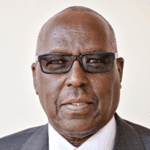
Eng. Erastus K. Mwongera
Chairman,
Engineers Board of Kenya.
Date: Friday 28th August, 2020
ABSTRACT:
1. The Board’s mandate and the impact of regulation in streamlining the delivery of professional engineering services.
2. Capacity development and collaborations with other institutions in the development of the engineering profession in Africa.
3. The role the Board is playing in supporting the government to achieve its vision 2030.
BIO:
Eng. Mwongera is an Engineering Graduate from the SWANSEA University UK BSc (Civil Engineering) United Kingdom. He is currently a Management Consultant specializing in Engineering, Management and Strategic Planning.
He is a board member of the Federation of Kenya Employers. He is also the current Chairman of the Engineers Board of Kenya and the immediate past Chairman of the Kenya National Highways Authority.
Eng. Mwongera has had a distinguished career in the public service spanning forty years. He started his career in the water sector where he was Principal of the Kenya Water Institute and a director of Water Development for a combined period of 12 years. Thereafter, for over 10 years, he served as permanent secretary in the Office of the Vice President, Ministry of Home Affairs, Ministry of Lands and Housing, Ministry of Roads, Public Works and Housing, Ministry of Water Resources and Ministry of Land Reclamation, Regional and Water Development. In recognition for his distinguished career in the Public Sector he was decorated with Chief of Burning Spear (CBS), Elder of Burning Spear (EBS) and Grand Warrior of Kenya (OGW).
Eng. Mwongera is a distinguished engineer who has played a key role in the development of the engineering profession and practice in Kenya as a past chairman of the Engineers’ Registration Board and he is currently chairman of the Eminent Fellow Engineers’ Forum.

